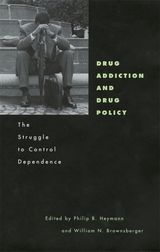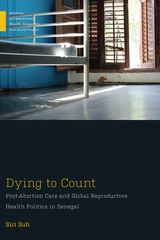4 start with D start with D

The COVID-19 pandemic has demonstrated some of the strengths of our society, including the rapid development of vaccines. But the pandemic has also exposed its glaring weaknesses, such as the failure of our government to develop and quickly implement strategies for tracing and containing outbreaks as well as widespread public distrust of government prompted by often confusing and conflicting choices—to mask, or not to mask. Even worse is that over half a million deaths and the extensive economic devastation could have been avoided if the government had been prepared to undertake comprehensive, contextually-sensitive policies to stop the spread of the disease.
In Democracy in the Time of Coronavirus, leading political thinker Danielle Allen untangles the US government’s COVID-19 victories and failures to offer a plan for creating a more resilient democratic polity—one that can better respond to both the present pandemic and future crises. Looking to history, Allen also identifies the challenges faced by democracies in other times that required strong government action. In an analysis spanning from ancient Greece to the Reconstruction Amendments and the present day, Allen argues for the relative effectiveness of collaborative federalism over authoritarian compulsion and for the unifying power of a common cause. But for democracy to endure, we—as participatory citizens—must commit to that cause: a just and equal social contract and support for good governance.

"Freedom and Justice for all" is a phrase that can have a hollow ring for many members of the disability community in the United States. Jacqueline Vaughn Switzer gives us a comprehensive introduction to and overview of U.S. disability policy in all facets of society, including education, the workplace, and social integration. Disabled Rights provides an interdisciplinary approach to the history and politics of the disability rights movement and assesses the creation and implementation, successes and failures of the 1990 Americans with Disabilities Act (ADA) by federal, state and local governments.
Disabled Rights explains how people with disabilities have been treated from a social, legal, and political perspective in the United States. With an objective and straightforward approach, Switzer identifies the programs and laws that have been enacted in the past fifty years and how they have affected the lives of people with disabilities. She raises questions about Congressional intent in passing the ADA, the evolution and fragmentation of the disability rights movement, and the current status of disabled people in the U.S.
Illustrating the shift of disability issues from a medical focus to civil rights, the author clearly defines the contemporary role of persons with disabilities in American culture, and comprehensively outlines the public and private programs designed to integrate disabled persons into society. She covers the law's provisions as they apply to private organizations and businesses and concludes with the most up-to-date coverage of recent Supreme Court decisions-especially since the 2000-2002 terms-that have profoundly influenced the implementation of the ADA and other disability policies.
For activists as well as scholars, students, and practitioners in public policy and public administration, Switzer has written a compassionate, yet powerful book that demands attention from everyone interested in the battle for disability rights and equality in the United States.

This book is the culmination of five years of impassioned conversations among distinguished scholars in law, public policy, medicine, and biopsychology, about the most difficult questions in drug policy and the study of addictions. As these intensely argued chapters show, the obvious answers are always alluring but frequently wrong.
Do drug addicts have an illness, or is their addiction under their control? Should they be treated as patients, or as criminals? Challenging the conventional wisdom in both the psychiatric community and the enforcement community, the authors show the falsity of these standard dichotomies. They argue that the real question is how coercion and support can be used together to steer addicts toward productive life.
Written in clear and forceful language, without ideological blinkers and with close attention to empirical data, this book has something to teach both novice and expert in the fields of drug addiction and drug policy. The authors' resistance to sloganeering from right or left will raise the quality of public discussion of a complex issue, and contribute to the management of one of the most painful and enduring problems of American society.

READERS
Browse our collection.
PUBLISHERS
See BiblioVault's publisher services.
STUDENT SERVICES
Files for college accessibility offices.
UChicago Accessibility Resources
home | accessibility | search | about | contact us
BiblioVault ® 2001 - 2024
The University of Chicago Press









